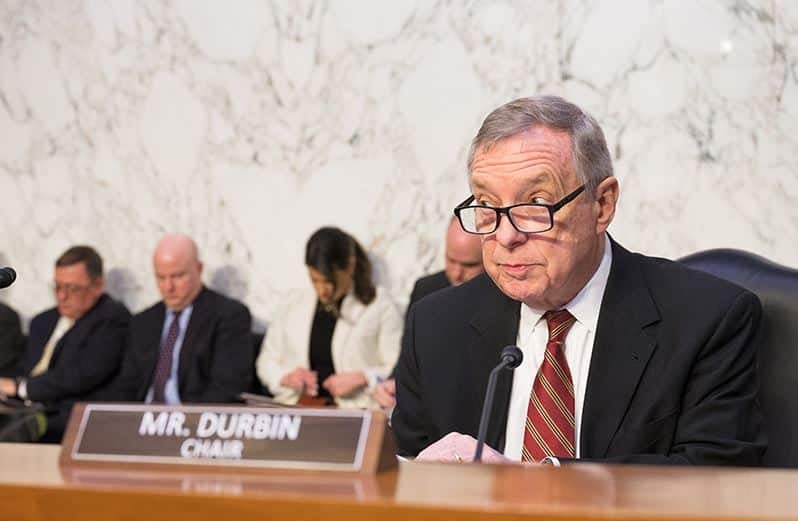Senate Hears About the Promise and Risks of AI

WASHINGTON — Information technology officials urged the Senate Tuesday not to overlook the dangers of artificial intelligence as they try to use it to improve the efficiency of government and industry.
During two Senate hearings, corporate, government and academic leaders discussed how the enormous potential of artificial intelligence could be abused to create great harm.
Some of the strongest warnings came from the head of the artificial intelligence company that makes ChatGPT, a chatbot app that answers questions with human-like responses.
“As this technology advances, we understand that people are anxious about how it could change the way we live,” Sam Altman, chief executive of OpenAI, told the Senate Judiciary Committee. “We are too.”
He recommended organizing a national or international agency authorized to decide whether to license powerful AI systems but also to “take that license away and ensure compliance with safety standards.”
Hours earlier, the Senate Homeland Security and Governmental Affairs Committee heard witnesses make similar suggestions.
The hearings were intended to help lawmakers figure out the kinds of regulations needed to harness the benefits of artificial intelligence without the hazards.
Artificial intelligence refers to the ability of programmed computers or robots to perform functions in a way that mimics human learning and decision-making, such as answering questions or composing content. It can be used to translate between languages, web searches, guiding self-driving cars and to generate art.
It also could make routine jobs obsolete while creating thousands of others in information technology.
Primary concerns of lawmakers during the Senate hearings were bad actors who could use artificial intelligence as a weapon.
The risks are particularly acute for government agencies if they are not properly controlled, said Sen. Rand Paul, R-Ky.
He said the FBI and National Security Agency already have used artificial intelligence to search for criminal threats in online conversations.
He cautioned that there were few restraints to prevent them from targeting political dissenters rather than true criminals.
“The United States is engaging in the same kind of activities that we criticized other countries for,” Paul said. “Artificial intelligence is only going to make it easier to do this.”
Tools that could be misused include spyware as well as face recognition and voice recognition technology to target political opponents for harassment or censorship. In addition, more than 50 countries are reportedly researching artificial intelligence for battlefield robots that could operate autonomously as weapons.
Daniel Ho, who oversees an artificial intelligence lab at Stanford University, said that personnel issues could be as much of a challenge as the technology.
“The government cannot govern AI if it does not understand AI,” Ho told the Homeland Security Committee.
He estimated that 40,000 workers trained to use and monitor artificial intelligence are needed throughout government agencies.
“The federal government needs to go from a few pockets of innovation to a culture of innovation,” Ho said.
Despite the risks, the Biden administration is pushing ahead with artificial intelligence development.
President Joe Biden said artificial intelligence could help to control diseases and climate change. He also said it would strengthen the U.S. economy, such as in competition with China.
This month, the White House announced a $140 million investment to begin seven new artificial intelligence research facilities. The White House also issued guidelines for federal agencies to use the technology.
Additional guidelines and regulations are being pledged by Senate Majority Leader Charles E. Schumer, D-N.Y. He said they would consist of a “high-level framework that outlines a new regulatory regime for artificial intelligence.”
You can reach us at [email protected] and follow us on Facebook and Twitter






















